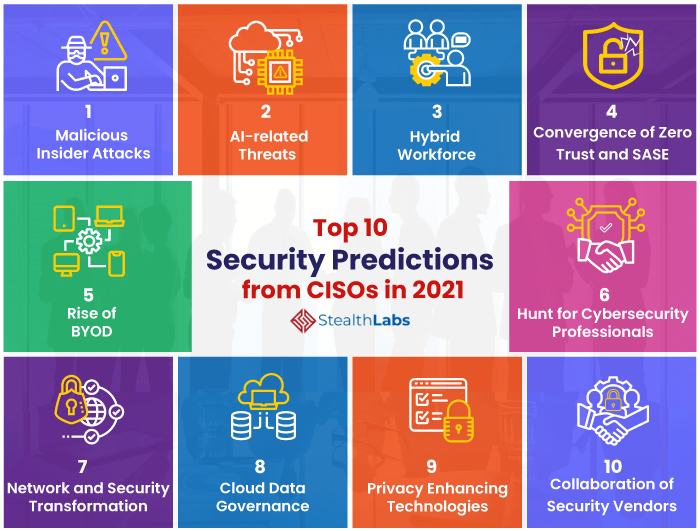Defend from evolving cyber attacks targeting businesses and individuals.
Wiki Article
Future-Proof Your Organization: Trick Cybersecurity Predictions You Required to Know
As services face the increasing speed of digital makeover, comprehending the evolving landscape of cybersecurity is vital for long-term strength. Predictions recommend a significant uptick in AI-driven cyber dangers, along with increased governing examination and the important change towards No Trust Design.Rise of AI-Driven Cyber Dangers

Among one of the most worrying growths is making use of AI in creating deepfakes and phishing schemes that are remarkably convincing. Cybercriminals can produce audio and video material, posing execs or relied on people, to adjust targets into divulging sensitive info or licensing deceptive deals. Furthermore, AI-driven malware can adjust in real-time to avert detection by conventional safety procedures.
Organizations need to acknowledge the urgent requirement to boost their cybersecurity frameworks to deal with these progressing dangers. This consists of investing in sophisticated danger discovery systems, fostering a culture of cybersecurity understanding, and carrying out durable case action plans. As the landscape of cyber risks transforms, aggressive actions end up being crucial for securing sensitive data and keeping organization honesty in a significantly electronic globe.
Increased Focus on Data Privacy
How can organizations successfully navigate the expanding focus on data privacy in today's electronic landscape? As governing frameworks evolve and customer expectations climb, services should focus on robust information privacy strategies. This entails adopting thorough data administration policies that make certain the honest handling of individual info. Organizations needs to carry out routine audits to assess conformity with regulations such as GDPR and CCPA, determining potential susceptabilities that could bring about data violations.Spending in staff member training is crucial, as staff awareness directly impacts data security. Furthermore, leveraging innovation to improve data safety is crucial.
Collaboration with lawful and IT teams is vital to straighten information personal privacy campaigns with organization purposes. Organizations must likewise engage with stakeholders, including clients, to interact their commitment to data personal privacy transparently. By proactively addressing data privacy issues, companies can develop count on and enhance their credibility, ultimately adding to lasting success in a significantly scrutinized electronic setting.
The Change to No Depend On Design
In reaction to the evolving threat landscape, companies are progressively adopting Zero Depend on Architecture (ZTA) as an essential cybersecurity method. This strategy is based on the concept of "never ever depend on, constantly confirm," which mandates continuous confirmation of individual identities, gadgets, and information, no matter their location within or outside the network perimeter.Transitioning to ZTA entails applying identification and access management (IAM) solutions, micro-segmentation, and least-privilege access controls. By granularly managing access to sources, companies can mitigate the threat of expert dangers and decrease the effect of external breaches. Furthermore, ZTA includes durable monitoring and analytics abilities, permitting organizations to find and react to anomalies in real-time.

The shift to ZTA is also sustained by the boosting adoption of cloud solutions and remote work, which have increased the assault surface (Deepfake Social Engineering Attacks). Conventional perimeter-based security versions are inadequate in this new landscape, making ZTA a much more resilient and flexible framework
As cyber threats proceed to grow in class, the adoption of Absolutely no Count on concepts will be critical for companies seeking to secure their assets and keep regulatory conformity while guaranteeing organization continuity in an unclear atmosphere.
Governing Changes on the Perspective

Forthcoming policies are anticipated to resolve a range of issues, including information personal privacy, violation notification, and event action methods. The General Information Protection Policy (GDPR) in Europe has established a criterion, and comparable structures are arising in various other areas, such as the United States with the proposed federal privacy legislations. These guidelines usually enforce strict penalties for non-compliance, emphasizing the need for organizations to prioritize their cybersecurity steps.
Additionally, sectors such as money, medical care, and essential framework are most likely to encounter extra rigorous needs, mirroring the delicate nature of the information they take care of. Compliance will not merely be a legal commitment but a vital part of building trust fund with consumers and stakeholders. Organizations has to stay ahead of these changes, incorporating governing needs into their cybersecurity techniques to guarantee resilience and secure their possessions effectively.
Relevance of Cybersecurity Training
Why is cybersecurity training a critical part of a company's protection method? In an age where cyber hazards are significantly innovative, companies need to recognize that their employees are usually the first line of defense. Reliable cybersecurity training equips staff with the understanding to recognize prospective hazards, such as phishing attacks, malware, and social design methods.
By cultivating a culture of security recognition, organizations can substantially minimize the cyber resilience threat of human mistake, which is a leading reason for data violations. Regular training sessions make sure that employees stay notified about the most recent hazards and best methods, consequently boosting their ability to respond properly to cases.
Moreover, cybersecurity training promotes compliance with regulative needs, lowering the risk of legal repercussions and punitive damages. It additionally encourages staff members to take ownership of their role in the organization's protection structure, causing a positive instead of responsive technique to cybersecurity.
Verdict
In final thought, the developing landscape of cybersecurity demands aggressive steps to address arising dangers. The increase of AI-driven attacks, combined with heightened information personal privacy concerns and the shift to Absolutely no Trust fund Design, necessitates a thorough method to security.Report this wiki page